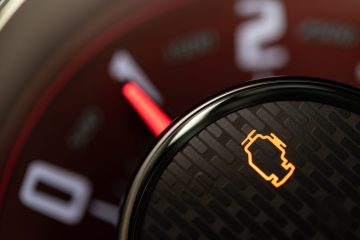There’s been a flurry of survey stories recently – they’re a good way to both gauge public opinion and get your brand in front of the media.
They also throw up some startling statistics, like the recent one from Kwik Fit concerning the number of people who do not check their oil levels. Then again, how many people today understand a car, and the fact that they need to do more than just pilot it?
Another Kwik Fit survey found that people were not concerned about vehicle batteries, while other numbers have been banded about concerning tyres, brakes and so forth. So is basic maintenance now being forgotten due to convenience?
Former teachings
Stemming from the war, the attitude of ‘make do and mend’ filtered through the British way of life for decades. I was brought up with that attitude – although my Dad was an engineer at Ford while I was growing up. But I bought my first car with my own money, and learnt to repair it myself, with my dad’s help.
I learnt how the braking system works, how to strip and repair a carburettor, and completed an engine swap together with switching from a manual to automatic choke. I was very hands on with my car, but then again, it was easy to be hands on with. You may have guessed that when I mentioned ‘carburettor’ – it was a 1987 Mk4 Escort. It wasn’t complex, you could not disturb the ignition system by installing a new stereo, it was not just easy to work on, but easy to check.
But it means that today, I understand how cars work, and the essential checks that need to be done on them. Today’s cars, however, are too complex. Not only that, but there does also seem to be a growing culture of parents buying their children their first car. Let’s face it, if you buy something expensive yourself, you’ll look after it, rather than if it’s bought for you.
Therefore, there is a culture issue, but is there another one? Are today’s cars too complex that not only do people find them difficult to work on themselves, but they also find them too difficult to understand what to check? Or do we rely too much on the technology within?
Essential checks
Obviously, more complex cars are good for garages. If people are unable to fix their own vehicles, they’re more likely to seek out the professionals for help. Even today, although I know my way around an engine, I will still go to a garage as the systems are too tricky to navigate.
So, if kids are not being taught how to maintain a vehicle, they don’t carry these skills into their driving lives. And they will not teach their kids, and the cycle continues. But if you know the car is too complex, you’ll just never open the bonnet, right?
Or – are we relying too much on the technology within? Why check the oil when the light comes on within the instrument cluster? Tyres are fine unless the TPMS indicates a fault, surely? Brakes – same as the oil of course?
Sometimes you have to question the common sense of the public, but the aftermarket has an opportunity to step in. Garages can educate customers to simple checks that will keep them and other road users safe, and will also save them money in the long run. It’s an extra job to do perhaps, but you may not only be helping those you teach, but also generations that follow them.



